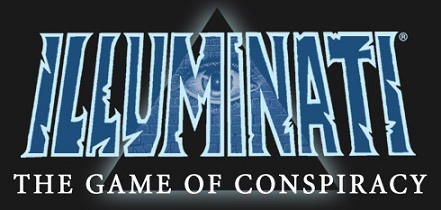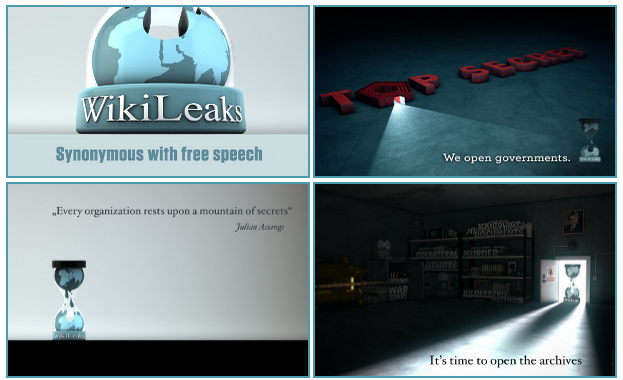|
Di seguito gli interventi pubblicati in questa sezione, in ordine cronologico.
... CONTINUES.
Consider, for example, the wheel. Mary Bellis, credited by Forbes Best of the Web for her contribution of information about inventors and inventions, states in an article at about.com that the wheel was very likely first invented in 3500 BC in Mesopotamia (Bellis). Inventions prior to this had, for the most part, been very basic extensions of the human being such as bone, stone, or wooden tools used to carry out tasks the fingernails or arms alone could not. As such, the inventor of the wheel did not have a previous model to work from. As Ricky Gervais says in his comedy special “Animals”, “…it’s not like he saw some on holiday and went ‘that would be good …’ he made it up!” Despite the comedic nature of Gervais’s comments, he makes an astute point about the basis of original thought. A truly novel concept does not draw from previous findings and does not have a parallel in precedent. While the wheel was also “invented” by other civilizations, the precedent had already been set in Mesopotamia, nullifying the novelty in the larger scheme of things. These latter inventors are akin to children, who believe that they are the original creators of ways to get around the rules, in that they perceive themselves to be thinking originally in that respect. In a closed system, certainly they may be thinking quite originally. However, as is often stated by the children’s parents, the concepts are not in and of themselves novel. The phrase used by my parents around my house when I was a child was “I pulled the same stunts at your age; don’t think you’re so smart.”

In considering scientific discovery in the light of these definitions and examples, a marked distinction is made: the difference between the aforementioned concepts, and that of the connection of ideas associated with scientific discovery itself. This process is neither truly original as in the case of the invention of the wheel, nor is it original in perception as in the case of the child’s isolated system. While Merriam-Webster defines discovery as “the act or process of obtaining sight or knowledge of for the first time”, implying that discovery is a process based in originality, I believe this definition to be imprecise when applied to the products of science. I am referring to the body of scientific discoveries which, whether by accident as in the case of chewing gum, or by the fruition of directed and applied research as in the case of the laser, are made by following the scientific method. Merriam-Webster defines this method as “principles and procedures for the systematic pursuit of knowledge involving the recognition and formulation of a problem, the collection of data through observation and experiment, and the formulation and testing of hypotheses”. This definition, along with several examples, will help to further illustrate the difference to which I refer.
TO BE CONTINUED ...
... CONTINUES.
The Heliocentric Theory of the solar system was first publicly suggested by Copernicus in 1543, the year he died (Hewitt 20). For a period of two millenia prior, Aristotle’s theory that the Earth was the center of the universe, and that all other things moved about it had been the commonly accepted viewpoint, with strong backing from the Church. With trepidation, and at the urging of his closest contemporaries, Copernicus presented his findings, which were based on observation and critical analysis. The methods he used to discern the difference and the general concepts that both the Sun and the Earth were distinct bodies, at least one of which was able to move, were not new. Copernicus used both the observational methods of the time and the concept of heavenly bodies in motion to arrive at his conclusion, making a connection, using these pre-existing ideas. While his findings were contradictory to the accepted norms of the time, they weren’t new as much as they were different. Consider also the dual wave and particle nature of light defined by Einstein’s photon. Einstein combined the wave theory of Huygens with the quantum theory advanced by Planck, mathematically proving that light has properties of both waves and particles dependent on what it interacts with (Hewitt 560). At the same time, he made another scientific discovery, the Special Theory of Relativity, modifying and combining the findings of Newton and Maxwell (Hewitt 635). Each of these discoveries, while novel in presented form, is simply a combination of previous ideas. Since the time of Copernicus, who was the precursor to and inspiration for Galileo’s scientific method, Man has made scientific discoveries based on the findings and methods of those who came before them (Hewitt 21).

Whether they contradict, combine, or expand accepted knowledge, scientific discoveries are not original thought. This serves to illuminate a concept which, in my opinion, is worthy of celebration: any student of the scientific method could be the next Copernicus, Galileo, Newton, or Einstein. While it is highly improbable that a person will invent a truly novel idea, it is quite probable, and even likely that future scientists will expand, combine, or contradict previously accepted scientific knowledge. I say this due to the great volume of scientists who have contributed in such a way over the past 2000 years and in ever-increasing numbers within the past century. As science leads human beings directly to technology, the main contributor to improved quality of life, this distinction can hardly be viewed negatively. Sir Isaac Newton was not ashamed that his discoveries had benefited from the work of his predecessors. If anything, his words paint him as proud to be a part of the bigger picture; the ongoing pursuit of knowledge, and the celebration inherent in discovery. In this light, so-called “intellectual materialism”, or ownership of ideas, especially those scientific in nature, is an affront to the enormous body of work leading to each nuance that is discovered about our universe and its properties through the scientific method. The US Patent and Trademark Office claims to “promote the progress of science and the useful arts by securing for limited times to inventors the exclusive right to their respective discoveries” (USPTO). To whom, then, go the rights? Scientific discoveries, being not original to any one person or team, cannot be attributed to any one person or team. They must be attributed to the entire body of scientists who provided the background research that made the discoveries possible. So states the old proverb, “Credit where credit is due.”
Science is a tool meant to help us gain knowledge for the benefit of all people, and is the result of the work of many contributors. Each contributor along the way must remember that the distance of their vision comes from the lofty perch they have attained by standing on the shoulders of those who have come before them, and that they too will provide such a place for future contributors to stand and gaze into the unknown.
Bellis, Mary. “The Invention of the Wheel.” about.com. The New York Times Company, 2010. Web. 27 Feb. 2010.
Hewitt, Paul G. Conceptual Physics. 8th Ed. Reading: Addison Wesley, 1998. Print.
“The USPTO: Who We Are.” uspto.gov. United States Patent and Trademark Office, 30 Dec. 2009. Web. 8 Mar. 2010.
Source: thezeitgeistmovement.com
Facebook, LinkedIn and other social networking sites represent "one of several threats" to the future of the world wide web, its founder, Sir Tim Berners-Lee, has warned.

Some of its "most successful inhabitants", such as Facebook and big telecommunications companies, had begun to "chip away" at its founding principles, Sir Tim wrote in a Scientific American essay published this week.
Social networking sites that do not allow users to extract the information they put into them is a "problem" that could mean the web is "broken into fragmented islands", he said. Google accused Facebook this month of leaving its more than 500 million users in a "data dead-end" with their contact details and personal information "effectively trapped".
Although Facebook, the world's most popular social network, recently began allowing users to download profile information, including status updates and photos, it has been roundly criticised for leaving users' networks of contacts "walled" inside its own site.
Sir Tim warned that such a "closed silo of content" risked leaving the web fragmented.
"The web evolved into a powerful, ubiquitous tool because it was built on egalitarian principles," he said. "The web as we know it, however, is being threatened in different ways...
"The more you enter, the more you become locked in. Your social networking site becomes a central platform - a closed silo of content, and one that does not give you full control over your information in it."
Sir Tim said there was a worry Facebook could become "so big that it becomes a monopoly, which tends to limit innovation".
Source: smh.com.au
Politics Explained

FEUDALISM: You have two cows. Your lord takes some of the milk.
PURE SOCIALISM: You have two cows. The government takes them and puts them in a barn with everyone else's cows. You have to take care of all of the cows. The government gives you as much milk as you need.
BUREAUCRATIC SOCIALISM: You have two cows. The government takes them and put them in a barn with everyone else's cows. They are cared for by ex-chicken farmers. You have to take care of the chickens the government took from the chicken farmers. The government gives you as much milk and eggs as the regulations say you need.
FASCISM: You have two cows. The government takes both, hires you to take care of them and sells you the milk.
PURE COMMUNISM: You have two cows. Your neighbors help you take care of them, and you all share the milk.
RUSSIAN COMMUNISM: You have two cows. You have to take care of them, but the government takes all the milk.
CAMBODIAN COMMUNISM: You have two cows. The government takes both of them and shoots you.
DICTATORSHIP: You have two cows. The government takes both and drafts you.
PURE DEMOCRACY: You have two cows. Your neighbors decide who gets the milk.
REPRESENTATIVE DEMOCRACY: You have two cows. Your neighbors pick someone to tell you who gets the milk.
BUREAUCRACY: You have two cows. At first the government regulates what you can feed them and when you can milk them. Then it pays you not to milk them. Then it takes both, shoots one, milks the other and pours the milk down the drain. Then it requires you to fill out forms accounting for the missing cows.
PURE ANARCHY: You have two cows. Either you sell the milk at a fair price or your neighbors try to take the cows and kill you.
LIBERTARIAN/ANARCHO-CAPITALISM: You have two cows. You sell one and buy a bull.
SURREALISM: You have two giraffes. The government requires you to take harmonica lessons.
Source: sjgames.com
Human behavior is subject to the same laws as any other natural phenomenon. Our customs, behaviors, and values are byproducts of our culture. No one is born with greed, prejudice, bigotry, patriotism and hatred; these are all learned behavior patterns. If the environment is unaltered, similar behavior will reoccur.
Today, much of the technology needed to bring about a global Resource-Based Economy exists. If we choose to conform to the limitations of our present monetary-based economy, then it is likely that we will continue to live with its inevitable results: war, poverty, hunger, deprivation, crime, ignorance, stress, fear, and inequity. On the other hand, if we embrace the concept of a global resource-based economy , learn more about it, and share our understanding with our friends, this will help humanity evolve out of its present state.
http://www.thevenusproject.com
Around 32,000 people commit suicide in the U.S. each year; 20 percent of those suicides are veterans. Traditionally, when we think of suicide among vets, we think of men. But this week, for the first time, a sizable study was published that looked specifically at female veterans and suicide.
Dr. Jan Kemp, who runs the Department of Veterans Affairs' National Suicide Prevention Hotline, says that about a year ago, her office got a call from a female vet who had recently returned from abroad. The woman explained that she was in a car, in a remote area, and was calling the hot line because she needed it to relay a message.

"She had had a recent argument with her husband and had come to the conclusion that he and her two young children would be better off without her," Kemp said. "She had [post-traumatic stress disorder]. She had a history of MST — military sexual trauma — and she just couldn't get it together — and was tired of trying. So she had gathered up a lot of pills, she had them with her, and she called us because she wanted us to let him know that it wasn't his fault, that she was doing this for him.
"And we could hear her actually get out of the car and start walking through the woods."
Before the line went dead though, a worker at the hot line figured out the woman's local VA office and called it. The office identified the woman and then called her husband, who gave the police a description of her car.
"We were able to get the authorities to start driving around those backcountry roads till they found the car and followed her path in through the woods and found her," Kemp said.
The woman — groggy and practically unconscious — was carried to the hospital and saved, which, in a way, makes this a happy story. But there aren't happy stories for everybody.
The journal Psychiatric Services published this week the first large-scale study of suicide among female veterans. To do the study, Portland State University researcher Mark Kaplan collected information about all the female deaths by suicide in 16 states.
He then compared the rate of suicide among female veterans to the rate of suicide among female civilians, and found that in general female vets are much more likely to commit suicide than their civilian peers, especially, Kaplan says, younger vets.
"Female veterans — age 18 to 34 — are three times as likely as their civilian peers to die by suicide," he said.
That's a very big difference. Because historically there have been many more men than women in the military, the problem of female suicide hasn't received much attention. But the armed forces are integrating: In the current wars, women are on increasingly on the frontlines.
Kaplan says he wants people to take suicide among female vets more seriously.
"When we think of suicide, and suicide completion, I don't think we often think of women enough," he said. "That's my point."
Kemp, the director of the suicide hot line, agrees with Kaplan. And though she says the underlying problems of adjustment and PTSD are similar for both men and women, there are some differences. Many of the women who call her hot line, she says, are struggling to deal with military rapes they experienced during their deployments. And the women who call, Kemp says, talk much more about their children.
"They worry that because they sometimes get angry and don't deal with things well that they won't be appropriate with their kids," she said. "And I think that is one of the things that it most poignant on the hot line is when young mothers call and they're concerned about their ability to take care of their children because of their problems."
In the coming decades, both Kemp and Kaplan say, more women will work on the frontlines of war. An increase in female suicide, this study suggests, is likely to follow.
Source: npr.org - Author: ALIX SPIEGEL
Wikileaks is currently under heavy attack.
In order to make it impossible to ever fully remove Wikileaks from the Internet, we need your help.
if you have a unix-based server which is hosting a website on the Internet and you want to give wikileaks some of your hosting resources, you can help!
Please follow the following instructions:
- Setup an account where we can upload files using RSYNC+SSH (preferred) or FTP
- Put our SSH key in this server or create an FTP account
- Create a virtual host in your web server, which, for example, can be
wikileaks.yourdomain.com
- send the IP address of your server to us, and the path where we should upload the content. (just fill the form below)
We will take care of all the rest: Sending pages to your server, updating them each time data is released, maintaining a list of such mirrors. If your server is down or if the account don't work anymore, we will automatically remove your server from the list.
Our content is only html/css/javascript/png static files, so we don't require much resource to host it.
The complete website should not take more than a couple of GB at the moment (with base website and cablegate data)
To add your mirror to the list, please download the SSH key you will find below, then fill the following form to add your website to our mirror list :

Share a Wikileaks release with a friend. Spread our wallpapers. Donate to support vital infrastructure. If you believe democracy and transparency go hand in hand, now is the time to stand and say: "The world needs Wikileaks."
DONATE
WikiLeaks brings truth to the world by publishing fact-based stories without fear or favor. You can help support our independent media by donating financially.
Our organisation exists because of the work of many volunteers who have contributed thousands of hours to building WikiLeaks from the ground up. But we still need donations to pay for computers, expert programmers and other bills. You choose how much you can donate, we don't recommend any particular amount. Just do what you think is right.
There are four ways to donate:
Donate to Julian Assange Defence Fund
Online Transfer via Credit Card
Bank Transfer [option 1: everyone]
Bank Transfer [option 2: tax deductible in Germany]
Paypal via Wau Holland Foundation
Postal Mail
1. Julian Assange Defence Fund
Swiss cut off bank account for WikiLeaks' Assange. And here is why
2. Online Transfer via Credit Card
Using our friendly credit card processing partner Datacell Switzerland.
3. Bank Transfer - Option 1: via Sunshine Press Productions ehf:
Skulagötu 19, 101 Reykjavik, Iceland
Landsbanki Islands Account number 0111-26-611010
BANK/SWIFT:NBIIISREXXX
ACCOUNT/IBAN:IS97 0111 2661 1010 6110 1002 80
4. Bank Transfer - Option 2: via the not-for-profit Wau Holland Stiftung Foundation:
This support is tax deductible in Germany
Bank Account: 2772812-04
IBAN: DE46 5204 0021 0277 2812 04
BIC Code: COBADEFFXXX
Bank: Commerzbank Kassel
German BLZ: 52040021
Subject: WIKILEAKS / WHS Projekt 04
5. PayPal via Wau Holland Foundation
We don't accept paypal donations anymore. And here is why
6. Via Postal Mail
You can post a donation via good old fashion postal mail to:
WikiLeaks
(or any suitable name likely to avoid interception in your country)
BOX 4080
Australia Post Office - University of Melbourne Branch
Victoria 3052
Australia

"I have been primarily interested in how and why ordinary people do unusual things, things that seem alien to their natures. Why do good people sometimes act evil? Why do smart people sometimes do dumb or irrational things?" --Philip Zimbardo
Like eminent social psychologist Professor Philip Zimbardo, I'm also obsessed with why we do dumb or irrational things. The answer quite often is because of other people - something social psychologists have comprehensively shown.
Over the past few months I've been describing 10 of the most influential social psychology studies. Each one tells a unique, insightful story relevant to all our lives, every day.
The 'halo effect' is a classic finding in social psychology. It is the idea that global evaluations about a person (e.g. she is likeable) bleed over into judgements about their specific traits (e.g. she is intelligent). Hollywood stars demonstrate the halo effect perfectly. Because they are often attractive and likeable we naturally assume they are also intelligent, friendly, display good judgement and so on.
» Read on about the halo effect -»
The ground-breaking social psychological experiment of Festinger and Carlsmith (1959) provides a central insight into the stories we tell ourselves about why we think and behave the way we do. The experiment is filled with ingenious deception so the best way to understand it is to imagine you are taking part. So sit back, relax and travel back. The time is 1959 and you are an undergraduate student at Stanford University...
» Read on about cognitive dissonance -»
The Robbers Cave experiment, a classic study of prejudice and conflict, has at least one hidden story. The well-known story emerged in the decades following the experiment as textbook writers adopted a particular retelling. With repetition people soon accepted this story as reality, forgetting it is just one version of events, one interpretation of a complex series of studies.
» Read on about Sherif's Robbers Cave experiment -»
The famous 'Stanford Prison Experiment' argues a strong case for the power of the situation in determining human behaviour. Not only that but this experiment has also inspired a novel, two films, countless TV programs, re-enactments and even a band.
» Read on about Zimbardo's Stanford prison experiment -»
What psychological experiment could be so powerful that simply taking part might change your view of yourself and human nature? What experimental procedure could provoke some people to profuse sweating and trembling, leaving 10% extremely upset, while others broke into unexplained hysterical laughter?
» Read on about Milgram's obedience studies -»
Many people quite naturally believe they are good 'intuitive psychologists', thinking it is relatively easy to predict other people's attitudes and behaviours. We each have information built up from countless previous experiences involving both ourselves and others so surely we should have solid insights? No such luck.
» Read on about the false consensus bias -»
People's behaviour in groups is fascinating and frequently disturbing. As soon as humans are bunched together in groups we start to do odd things: copy other members of our group, favour members of own group over others, look for a leader to worship and fight other groups.
» Read on about why groups and prejudices form so easily -»
Bargaining is one of those activities we often engage in without quite realising it. It doesn't just happen in the boardroom, or when we ask our boss for a raise or down at the market, it happens every time we want to reach an agreement with someone. This agreement could be as simple as choosing a restaurant with a friend, or deciding which TV channel to watch. At the other end of the scale, bargaining can affect the fate of nations.
» Read on about how communication and threats affect bargaining -»
In social psychology the 'bystander effect' is the surprising finding that the mere presence of other people inhibits our own helping behaviours in an emergency. John Darley and Bibb Latane were inspired to investigate emergency helping behaviours after the murder of Kitty Genovese in 1964.
» Read on about bystander apathy -»
We all know that humans are natural born conformers - we copy each other's dress sense, ways of talking and attitudes, often without a second thought. But exactly how far does this conformity go? Do you think it is possible you would deny unambiguous information from your own senses just to conform with other people?
» Read on about Asch's classic conformity study -»
Source: spring.org.uk
 (This article originally appeared in Libération) (This article originally appeared in Libération)
"So why so much ado about these leaks? For one thing, they say what any savvy observer already knows: that the embassies, at least since the end of World War II, and since heads of state can call each other up or fly over to meet for dinner, have lost their diplomatic function and, but for the occasional ceremonial function, have morphed into espionage centres. Anyone who watches investigative documentaries knows that full well, and it is only out of hypocrisy that we feign ignorance. Still, repeating that in public constitutes a breach of the duty of hypocrisy, and puts American diplomacy in a lousy light.[...]
But let’s turn to the more profound significance of what has occurred. Formerly, back in the days of Orwell, every power could be conceived of as a Big Brother watching over its subjects’ every move. The Orwellian prophecy came completely true once the powers that be could monitor every phone call made by the citizen, every hotel he stayed in, every toll road he took and so on and so forth. The citizen became the total victim of the watchful eye of the state. But when it transpires, as it has now, that even the crypts of state secrets are not beyond the hacker’s grasp, the surveillance ceases to work only one-way and becomes circular. The state has its eye on every citizen, but every citizen, or at least every hacker – the citizens’ self-appointed avenger – can pry into the state’s every secret.[...]
One last observation: In days of yore, the press would try to figure out what was hatching sub rosa inside the embassies. Nowadays, it’s the embassies that are asking the press for the inside story."
Read more

Dr. Webb is co-author of the book Misdiagnosis and Dual Diagnoses of Gifted Children and Adults: ADHD, Bipolar, OCD, Asperger’s, Depression, and Other Disorders.
It has been my experience that gifted and talented persons are more likely to experience a type of depression referred to as existential depression. Although an episode of existential depression may be precipitated in anyone by a major loss or the threat of a loss which highlights the transient nature of life, persons of higher intellectual ability are more prone to experience existential depression spontaneously. Sometimes this existential depression is tied into the positive disintegration experience referred to by Dabrowski (1996).
Existential depression is a depression that arises when an individual confronts certain basic issues of existence. Yalom (1980) describes four such issues (or "ultimate concerns")--death, freedom, isolation and meaninglessness. Death is an inevitable occurrence. Freedom, in an existential sense, refers to the absence of external structure. That is, humans do not enter a world which is inherently structured. We must give the world a structure which we ourselves create. Isolation recognizes that no matter how close we become to another person, a gap always remains, and we are nonetheless alone. Meaninglessness stems from the first three. If we must die, if we construct our own world, and if each of us is ultimately alone, then what meaning does life have?
Why should such existential concerns occur disproportionately among gifted persons? Partially, it is because substantial thought and reflection must occur to even consider such notions, rather than simply focusing on superficial day-to-day aspects of life. Other more specific characteristics of gifted children are important predisposers as well.
Because gifted children are able to consider the possibilities of how things might be, they tend to be idealists. However, they are simultaneously able to see that the world is falling short of how it might be. Because they are intense, gifted children feel keenly the disappointment and frustration which occurs when ideals are not reached. Similarly, these youngsters quickly spot the inconsistencies, arbitrariness and absurdities in society and in the behaviors of those around them. Traditions are questioned or challenged. For example, why do we put such tight sex-role or age-role restrictions on people? Why do people engage in hypocritical behaviors in which they say one thing and then do another? Why do people say things they really do not mean at all? Why are so many people so unthinking and uncaring in their dealings with others? How much difference in the world can one person's life make?
TO BE CONTINUED ...
|
|
Ci sono 8658 persone collegate
|
<
|
aprile 2024
|
>
|
L |
M |
M |
G |
V |
S |
D |
1 |
2 |
3 |
4 |
5 |
6 |
7 |
8 |
9 |
10 |
11 |
12 |
13 |
14 |
15 |
16 |
17 |
18 |
19 |
20 |
21 |
22 |
23 |
24 |
25 |
26 |
27 |
28 |
29 |
30 |
|
|
|
|
|
| |
|
|
|
|
|
|
19/04/2024 @ 13:04:39
script eseguito in 895 ms
|
 (This article originally appeared in Libération)
(This article originally appeared in Libération)

 (p)Link
(p)Link Commenti
Commenti Storico
Storico Stampa
Stampa















 Feed RSS 0.91
Feed RSS 0.91 Feed Atom 0.3
Feed Atom 0.3
